Every college student needs a laptop. It’s probably the most important piece of equipment that will both enrich and ease life while studying, in class or at home. We’ve all been there. Getting ready for college or university, but having no clue what’s the best laptop to pick.
It’s tricky for anyone to choose the perfect notebook for their specific needs. Even more so for college students who are either on a budget, or study for majors that require working intensely on a computer, with specialized software.

When picking a model for college, it’s best to keep in mind a few tips. It helps knowing what to look for. Therefore, I’ve put together a short guide of most important aspects you should consider when searching for your next laptop.
If you’d like, you can skip straight to the list of best college laptops.
Make sure it’s future proof
Sure, it’s alluring to get that cheap, two-year old notebook model that’s currently on offer. But ask yourself this: will it handle your needs as well in three or four years time? A good laptop for college must be durable. It must feature modern hardware and have enough computing power for your needs.
Are you a law student and mostly need your laptop to edit documents? Sure, get a laptop with an Intel Core i5 processor. However, keep in mind that whatever your needs, the laptop you’ll end up buying must be dependable right now, and down the road as well.
Size and weight matters
How long will you be traveling around with your laptop? Will it stand most of the time in your dorm room? Because if it won’t, you’ll have to consider both size and weight. A smaller laptop will likely be more lightweight. But there’s a fine balance between screen size and usability. Typically, laptops with screens smaller than 12.5 inches aren’t that great for getting actual work done.
It’s best to shoot for a 13.3″ notebook if you plan on carrying it around the campus, or for a 15.6″ if you won’t commute that much. Only look for a 17.3″ if you truly need desktop-like performance or usability, otherwise it will be way too bulky! The ideal ultra portable device should weigh less than 3 pounds, while most 15.6 laptops weigh around 4 pounds, with small exceptions on either side of the scale.
Don’t overspend on hardware
It’s not necessarily wise to go for the most expensive model you can get your hands on. It may be overkill. Depending on what you’re studying, the laptop you’ll end up buying should reflect it. Take my law student example. Does he need a dedicated graphics card? How about obscene amounts of system memory? Of course not.
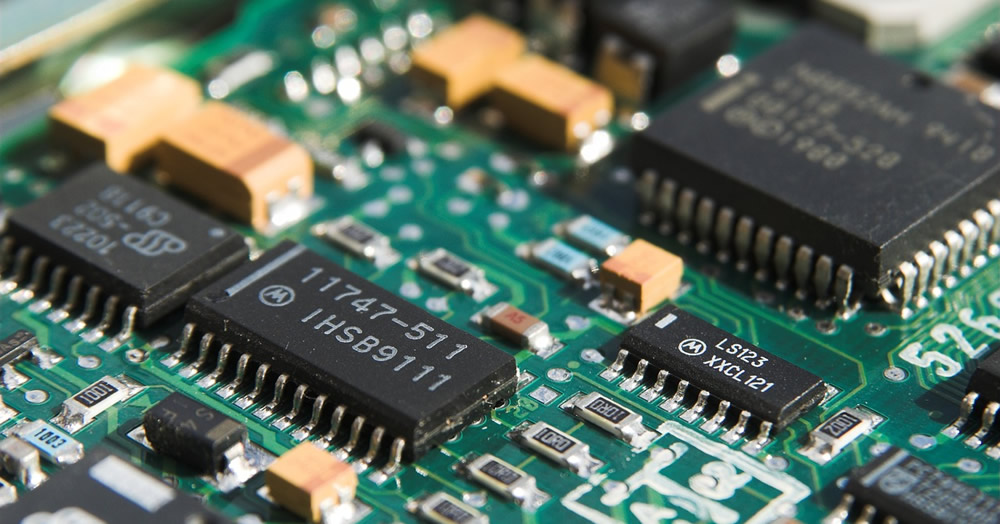
Similarly, a laptop that’s well suited for this hypothetical law student won’t satisfy the needs of an engineering, or an architecture student. Different needs lead to different laptop types. Hardware-wise, as a college student, you either need a good enough laptop or a great one, depending on your major.
Know what to expect
You won’t find a powerful college laptop for $300. That’s a given. Depending on your budget, you should try for the absolute best possible device without skimping on build quality. What would you rather buy? The cheapest possible car with the most optionals, or a more premium model, but with less extras?
Value for money is the name of the game. Both when buying a laptop and for just about everything else in life. Start planning with your budget in mind, first and foremost. Ideally, you’d want to spend at least $500 on a college laptop. There are very, very few models that go for less, while offering good specs and build quality. If budget allows, aim for laptops that are between $700 and $1,300. That’s where you’ll find the most well-suited models: not too slow, not too expensive.
Best College Laptops 2019 List
This list of the best college laptops you can buy in 2019 is structured with the student in mind. When researching possible candidates, I’ve thought about how future proof their hardware specs were. Secondly, I’ve looked at the price, features and build quality. Lastly, I’ve checked if long time users have complained about any significant flaws that might have popped up after a while.
Best Overall College Laptop
ASUS ZenBook 13 (UX331FA-AS51)
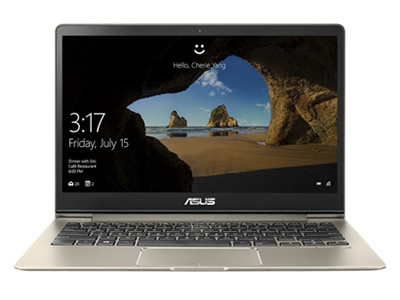
- Pros: Lightweight, great value for money, good all-around specs.
- Cons: None, really.
Essential Specs & Features:
- Intel Core i5-8265U CPU
- 8GB DDR3 RAM
- 512GB PCIe SSD
- Integrated Graphics
- 13.3″ FHD display
- 2.47 lbs.
- Up to 12 hours of battery life
- Quick charge, backlit keyboard, fingerprint reader
It’s hard to not like the ZenBook 13 (click to read my full review). It’s a suitable 13-inch option for most college students. A sort of jack of all trades if you want. It manages to tick all the required boxes that make a good college laptop. I especially love its slim profile, thin screen bezel and the possibility to change the touchpad into a numpad, which is useful for number crunching.
Value for money is great. You get about the same performance as you would with a MacBook Air, but with 4 times the amount of storage, while paying less. Also, this is a tried and tested series. Overall, long-time users have overwhelmingly positive opinions about the ZenBook 13.
Best Budget Laptop
Acer Aspire 5 (A515-54-51DJ)
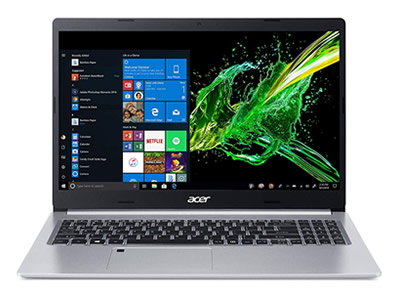
- Pros: Affordable, great value for money.
- Cons: Weight and ventilation.
Essential Specs & Features:
- Intel Core i5-8265U CPU
- 8GB DDR4 RAM
- 256GB PCIe NVMe SSD
- Integrated Graphics
- 15.6″ FHD IPS display
- 4.2 lbs.
- Up to 11 hours of battery life
- Backlit keyboard, fingerprint reader
The Acer Aspire 5 (go to full review page) is probably the best option for students on a tight budget. This model costs around $500 (at the time of this review). For that, you get about the same specs as you would with the ZenBook, with half as much storage space. Although you’ll end up paying something like $300 less than the ZenBook, you won’t benefit from the same features.
Users have reported that, because of the way its fan is positioned under the laptop, the Acer tends to heat up quickly if placed on the lap. Similarly, the fan is apparently annoying when working overtime to cool the laptop. Weight is another issue, yet not that big. Yes, the Acer weighs around 4.2 pounds, but it also features a larger, 15.6″ display. So, weight is more of a trade-off than anything else.
Best 2-in-1 College Laptop
Lenovo Flex 14 (81SS0005US)
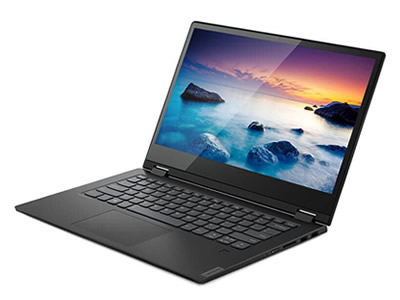
- Pros: Affordable, good CPU and GPU.
- Cons: Short battery life, system memory.
Essential Specs & Features:
- AMD Ryzen 5 3500U CPU
- 8GB DDR4 RAM
- 256GB NVMe SSD
- Integrated Graphics
- 14″ FHD display
- 3.65 lbs.
- Up to 7 hours of battery life
- Quick charge
If you just love scribbling around, drawing or using a touchscreen instead of a mouse, you’ll need a 2-in-1. Half tablet, half laptop, the Lenovo Flex 14 is an affordable, but not underpowered solution for all students. While the popular Surface Book 2 looks and feels more premium and lavish, the Lenovo does seem like a more student-oriented option. After all, it’s cheaper, has a slightly bigger display and similar hardware specs.
Also, there aren’t many complaints from users except for the amount of system memory. Many have reported that using the standard 8 gigs, the Flex seems to struggle. At least when seriously pushed. Therefore, it may be wise to plan on extending the RAM further down the road. It has 4 gigs soldered to the main board, with another 4 gigs as a detachable memory module.
It’s best to keep in mind its limitations. Basically, a full charge will only last for around 7 hours of moderate use. This should do the trick for most students on a day-to-day basis, yet it doesn’t come anywhere near what some ultra portable laptops are capable in terms of battery life. As such, plan accordingly and always fully charge it before going out.
Best Laptop For College Gamers
ASUS TUF Gaming FX505GT (TUF505GT-AH73)
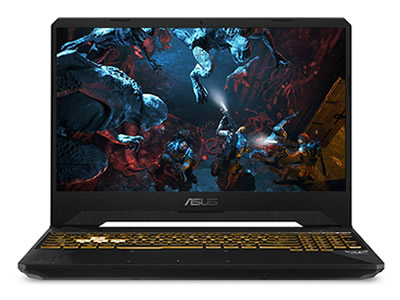
- Pros: Affordable, great all-rounder.
- Cons: Low battery life, heavy, short on RAM.
Essential Specs & Features:
- Intel Core i7-9750H CPU
- 8GB DDR4 RAM
- 512GB PCIe SSD
- NVIDIA GeForce GTX 1650 GPU
- 15.6″ 120Hz FHD display
- 4.8 lbs.
- Not specified
- Highlighted WASD keys, backlit keyboard
It’s unlikely to have a dedicated gaming laptop while studying for college. You’ll want a laptop to satisfy both your education and gaming needs at the same time. The all-new ASUS TUF Gaming FX505GT (click for a detailed review of this notebook) is a fairly inexpensive option. Costing under $1000, this laptop is equipped with a 9th generation Intel Core i7 processor, 8 gigs of RAM, ample SSD storage space, and a decent graphics card: the GeForce GTX 1650.
However, note that system memory is on the low-end side of things. I’d upgrade it to 16 gigabytes if I were to play more serious games. Otherwise, it’ll work just fine for popular MMORPGs. Other downsides include increased weight (this is the heaviest laptop on this list) and modest battery life.
Best Laptop For Art Students
HP ENVY 13 (13-aq0044nr)
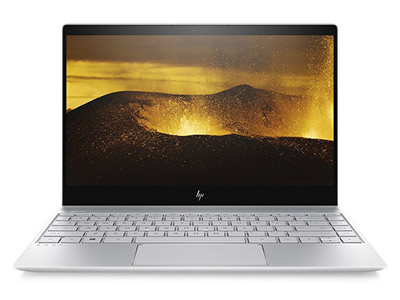
- Pros: Powerful, lightweight, 4K display.
- Cons: Small trackpad, pricey.
Essential Specs & Features:
- Intel Core i7-8565U CPU
- 16GB DDR4 RAM
- 512GB PCIe SSD
- GeForce MX250 GPU
- 13.3″ 4K IPS display
- 2.7 lbs.
- Up to 12 hours of battery life
- Quick charge, backlit keyboard
HP’s new ENVY 13 laptop series perfectly blend performance and portability in a stylish body. It’s one of the most compact notebooks out there, perfect for students on the go, who also need power at their fingertips. Battery life is more than acceptable, with up to 12 hours of life on a single charge. It’s perhaps most suited for those studying art and design, featuring a brilliant 4K display.
With 16 gigs of system memory and a dedicated graphics card, tasks like sketching, drawing and illustrating will take less time on average, with no glitches whatsoever. Top tip: buy yourself a good wireless mouse. The trackpad is smaller in height than most models, a necessary compromise in order to keep its size as small as possible. However, it’s a nuisance if you want to move efficiently.
Best Laptop For Architecture Students
Dell XPS 15 (XPS9570-7035SLV-PUS)
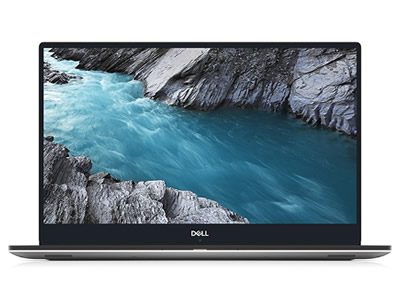
- Pros: Powerful CPU and GPU, 4K display.
- Cons: Underwhelming portability and battery life.
Essential Specs & Features:
- Intel Core i7-8750H CPU
- 16GB DDR4 RAM
- 256GB PCIe SSD
- NVIDIA GeForce GTX 1050Ti GPU
- 15.6″ 4K IPS display
- 4.0 lbs.
- Up to 8 hours of battery life
- Backlit keyboard, slim profile
If you study architecture, then you will most likely need a more powerful laptop than other majors. Mobile workstations are so expensive, I haven’t really considered them. Dishing out over $2500 is, for most college students, out of the question.
As such, the Dell XPS 15 makes for a great alternative. It’s still expensive, but not as much as a MSI WS65 for instance. As much as laptop recipes go, the XPS is perfect for architecture rendering and design: powerful Core i7 processor, 16 gigabytes of RAM and a mid range 1050Ti graphics card for good measure. Also, it features a splendid 4K display!
However, the major drawback with the Dell is battery life. This model has a large battery (96 Whr) , but drains faster due in part to the high resolution display. Considering all components draw significant power, don’t expect the XPS to last a full day worth of work.
Best Laptop For Business Students
Lenovo ThinkPad X1 Carbon (20KH002WUS)
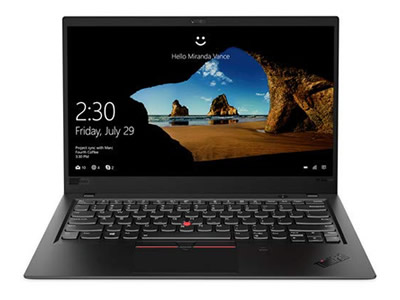
- Pros: Build quality, fantastic battery life, lightweight.
- Cons: Pricy for its hardware specs.
Essential Specs & Features:
- Intel Core i5-8300H CPU
- 8GB DDR4 RAM
- 256GB SSD
- Integrated Graphics
- 14″ FHD display
- 2.49 lbs.
- Up to 15 hours of battery life
- Backlit keyboard, durable and well made
Thinkpads are traditionally associated with quality through and through. This is the X1 Carbon: insanely lightweight for its size, durable and powerful enough for most. It’s unlikely that you, as a business student, will use much demanding software. Therefore, it would be overkill to go for insane specs, when you could spend that money on build quality and overall mobility.
Battery life is excellent. A full charge will last up to 14 to 15 hours while working on non-demanding tasks. Having a 2.5-pound laptop capable of that much autonomy, while also being dependable is fantastic for every business student, and not only.
Typing is an experience in itself, as always with Lenovo. The keys are perfectly spaced out and slightly curved in order to improve typing comfort and accuracy. The only drawback is its price (considering specs), but you’re likely to still use it well after you’ve finished college. It’s that well made.
Best Laptop For Engineering Students
ASUS ZenBook 15 (UX534FT-DB77)
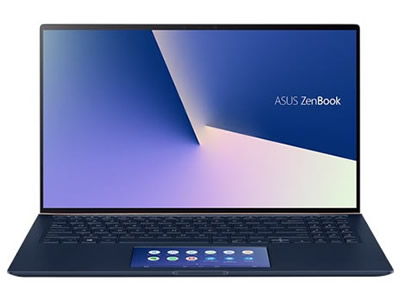
- Pros: Lightweight for its size, great performance and features.
- Cons: Pricy.
Essential Specs & Features:
- Intel Core i7-8565U CPU
- 16GB DDR4 RAM
- 1TB PCIe SSD
- NVIDIA GeForce GTX 1650 Max-Q GPU
- 15.6″ FHD display
- 3.6 lbs.
- Up to 17 hours of battery life
- Backlit keyboard, ScreenPad 2.0
I’d argue that unlike architecture students, those studying engineering need a slightly different kind of device. The ASUS ZenBook 15 (go to full review) features a FHD 15.6″ display. However, with the ASUS you get tons of storage space, a fast processor, adequate system memory and a mid-range GPU that’s also capable of running modern games.
Battery life is fantastic, to say the least. One full charge will last up to 17 hours. Also, weight won’t drag your backpack down, like you’d probably expect from a 15.6″ device with dedicated graphics. The ZenBook is surprising in all kind of good ways.